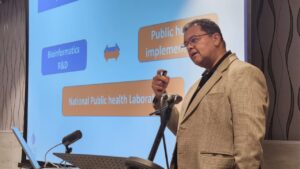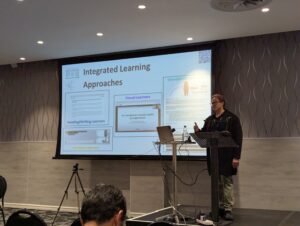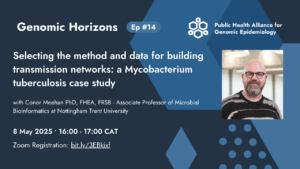Members of the Public Health Alliance for Genomic Epidemiology (PHA4GE) are scattered far and wide across the globe, so opportunities to catch up in person are heartily welcomed.
As some did at the second IPSN Global Partners Forum of the International Pathogen Surveillance Network (IPSN), which took place in Bangkok, Thailand, on 21 and 22 November 2024. The IPSN is a global network of scientists, policy makers and academics working in the field of pathogen genomics, and is brought together by the World Health organisation’s (WHO) Hub for Pandemic and Epidemic Intelligence to advance the deployment of pathogen genomics and to improve decision-making in public health. The Forum is the network’s new series of annual meetings, first staged in Germany in 2023.
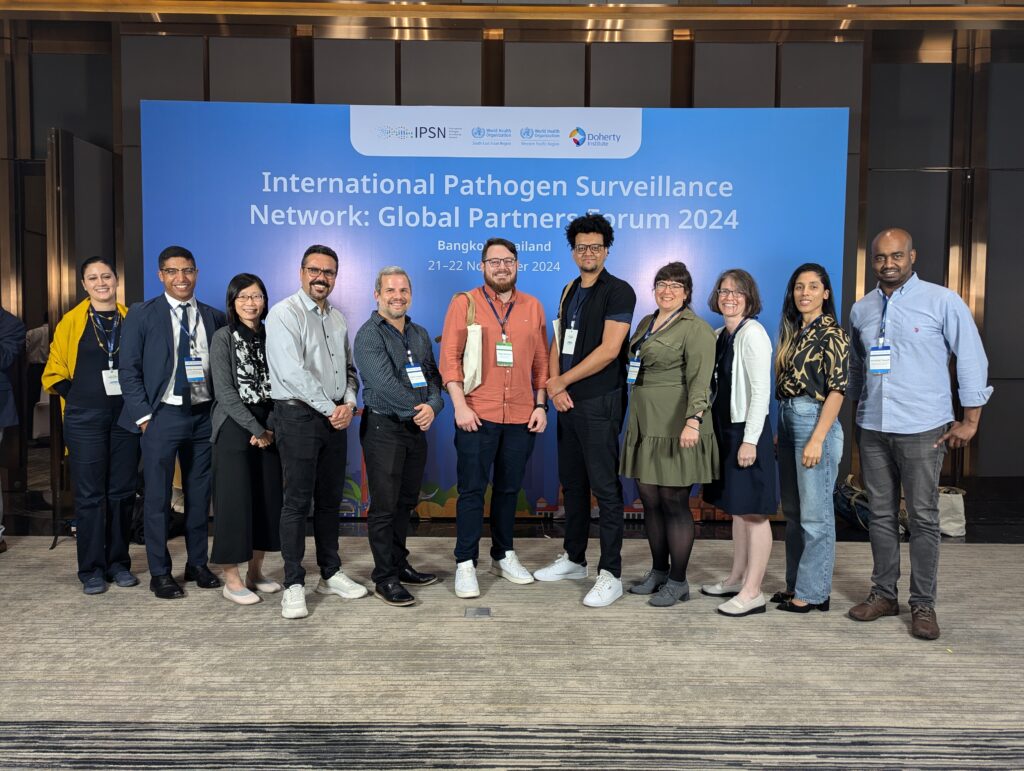
The Bangkok forum brought together some 150 members of the IPSN. They were co-hosted by the WHO South-East Asian and Western Pacific Regional Offices, alongside the University of Melbourne’s Centre for Pathogen Genomics.
Participants explored issues like policy and financing, capacity building, and emergency response. The meeting also zeroed in on wastewater and environmental surveillance, which has emerged as a key surveillance tool in the early detection of outbreaks, as well as a means to monitor the spread of infectious disease.
“The theory is that you can take samples from the sewerage system or from a public latrine, and can then see what diseases are circulating in the community before you have an influx of patients at your hospital,” explains Jamie Southgate, operations lead within the PHA4GE secretariat. The secretariat is hosted within the South African National Bioinformatics Institute (SANBI) at the University of the Western Cape.
While PHA4GE teams meet often, most such conversations take place through emails or online. The IPSN meeting allowed the likes of Tracey Calvert-Joshua, who joined the Alliance as scientific lead at the beginning of 2024, to have face-to-face chats with other members for the first time. The event not only inspired her thinking of how to possibly structure the next PHA4GE conference, but also made her see the value of having a conference with relatively fewer participants.
“Because it was so small, it was relatively easier to network with people,” reports Calvert-Joshua. “And they had to select really high-quality talks because they had so little time, and that raised the overall quality of the convening.”
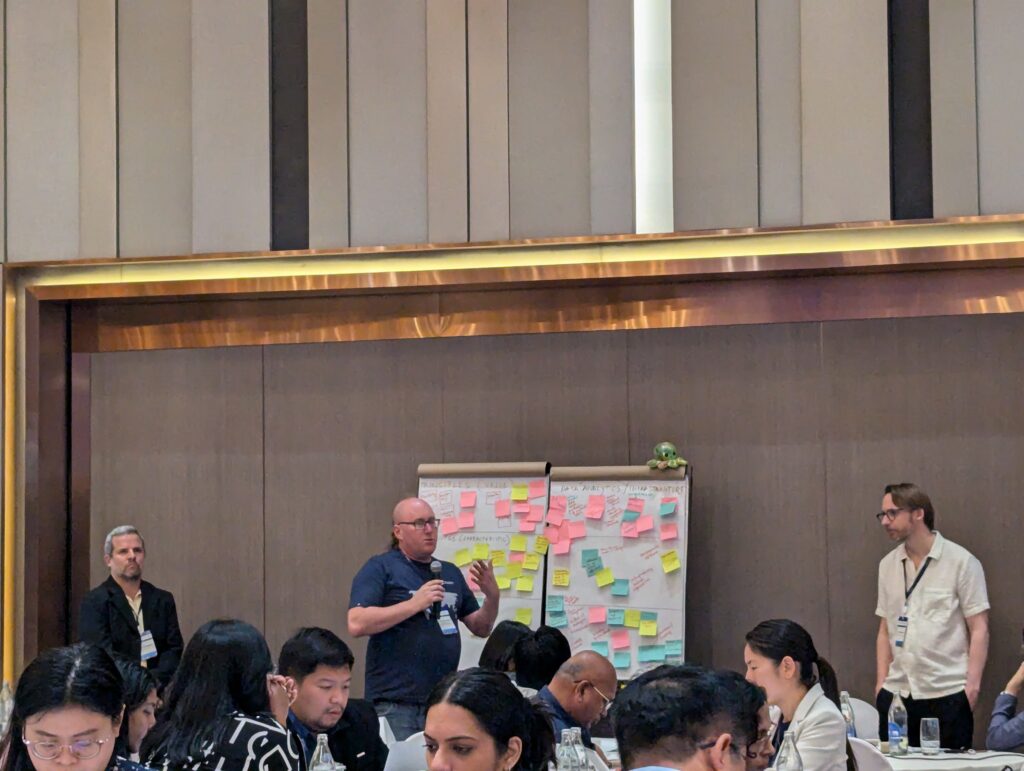
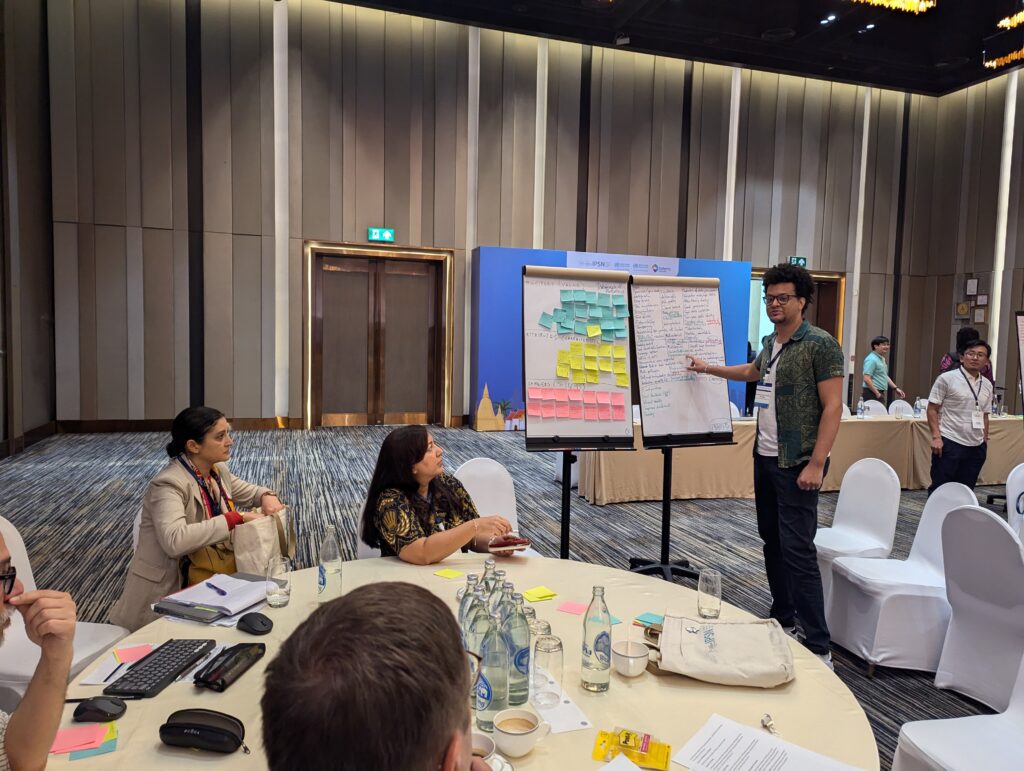
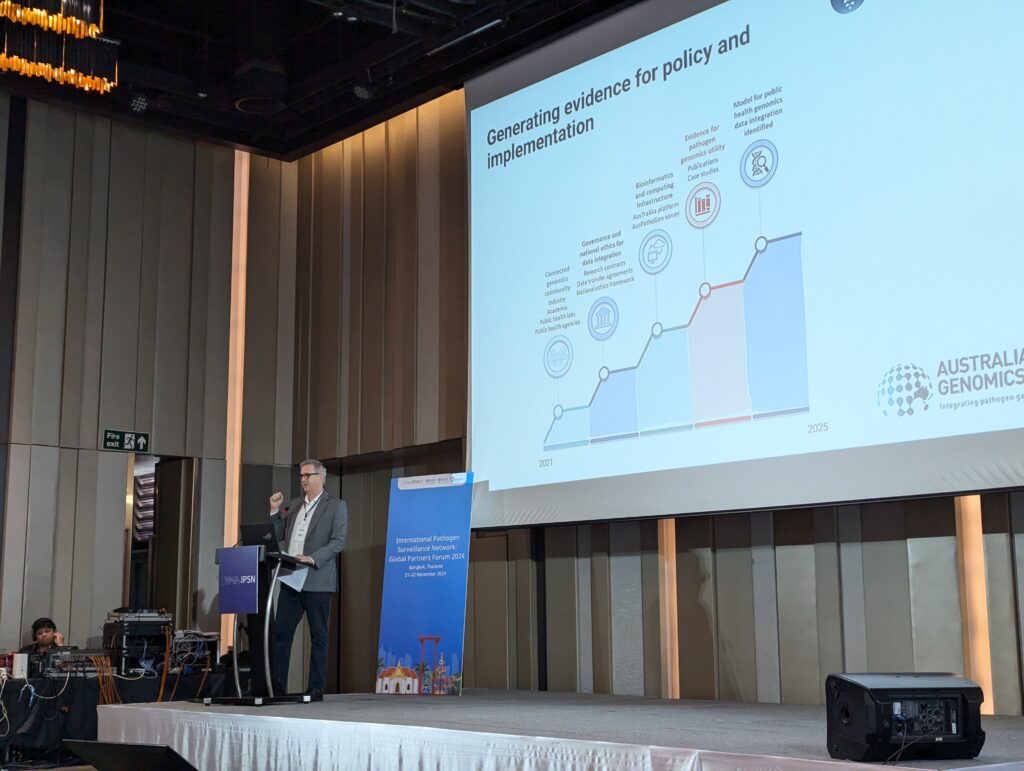
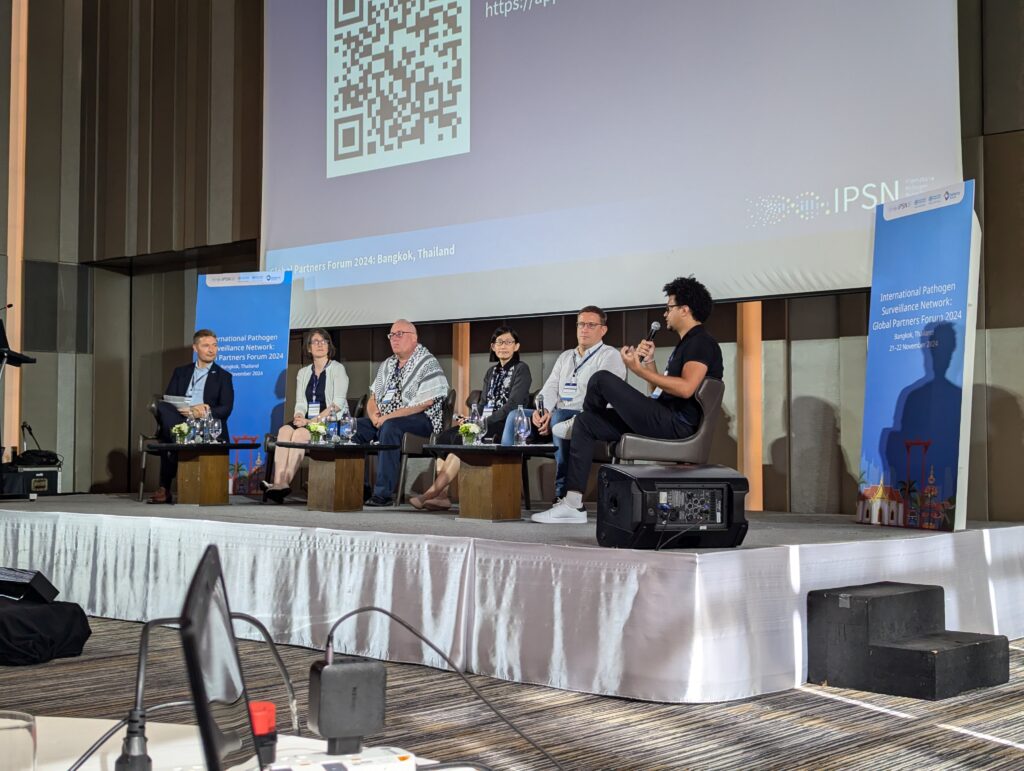
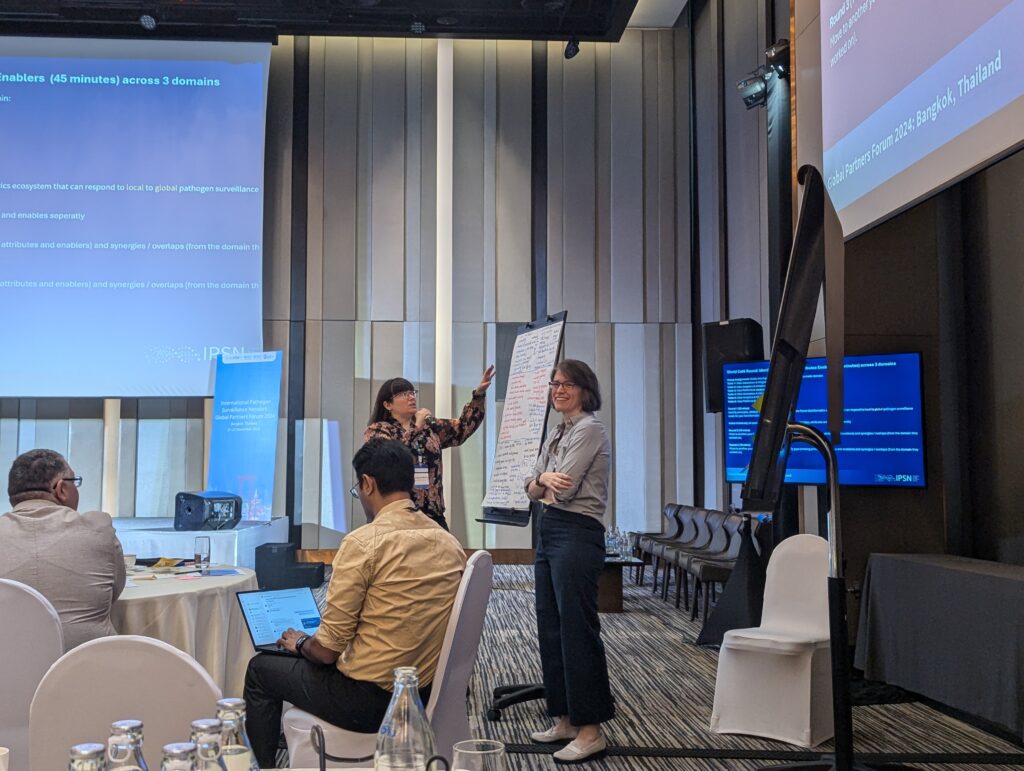
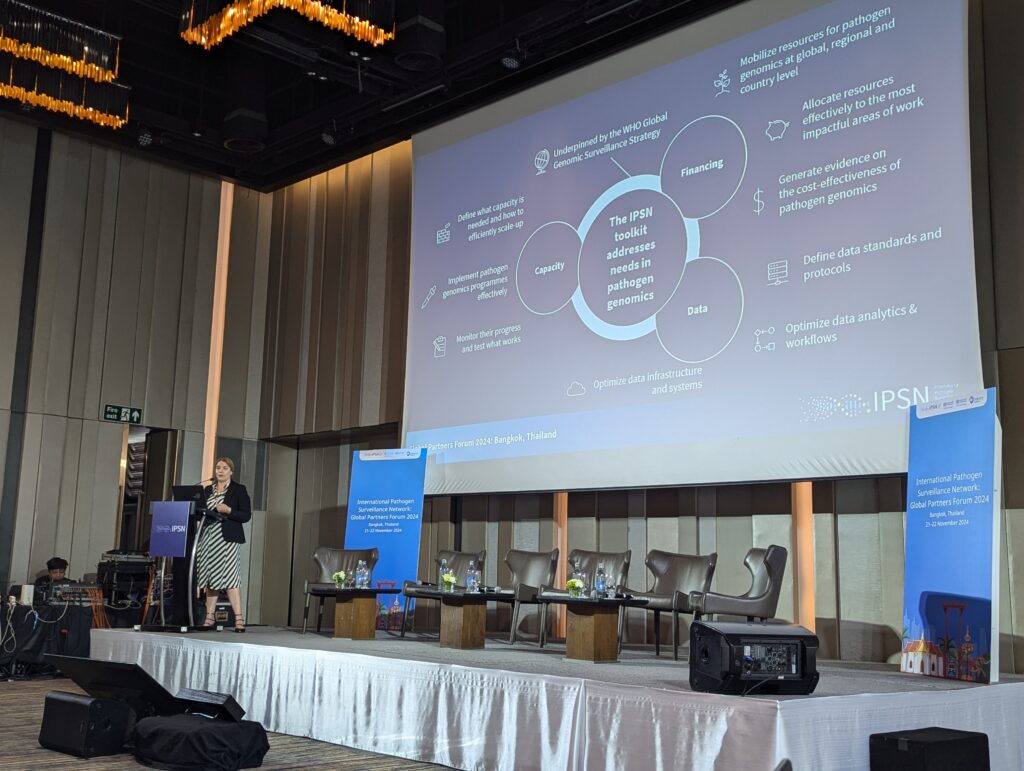
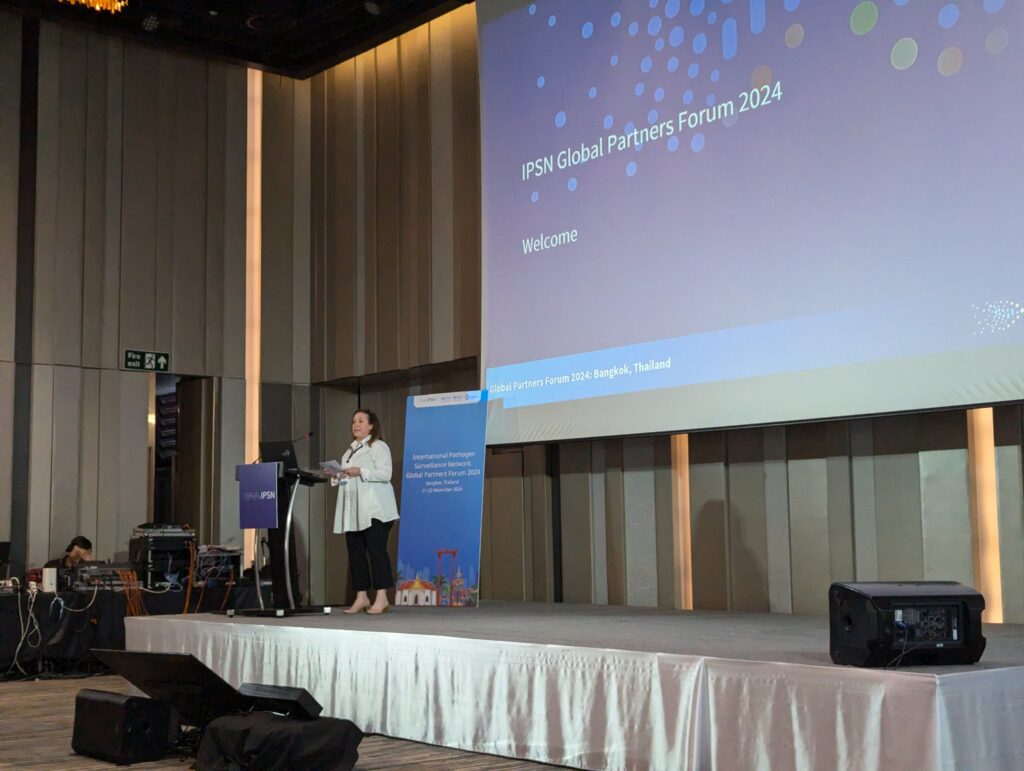

A highlight of the event was the announcement of the first 10 grantees – all organisations in low- and middle-income countries – of the IPSN Catalytic Grant Fund, hosted by the United Nations Foundation and initial grants funded by the by the Bill & Melinda Gates Foundation, The Rockefeller Foundation and Wellcome. The funding aims to support partners in “scaling up pathogen genomic surveillance projects, disseminate knowledge with the broader community and empower countries to make fast decisions in disease surveillance”. The recipient organisations hail from five African countries, as well as Brazil, India, Laos, Lebanon, and Sri Lanka.

